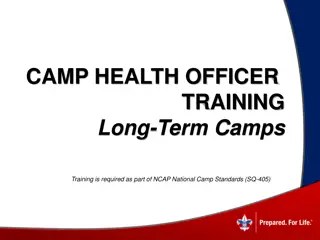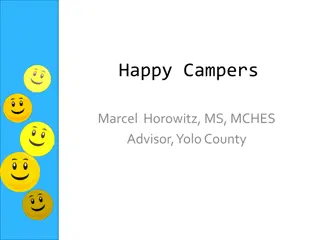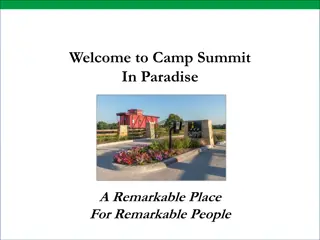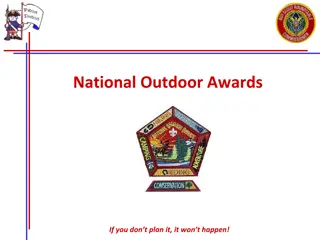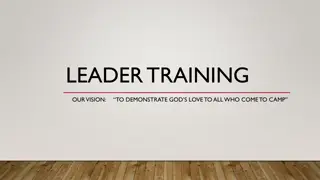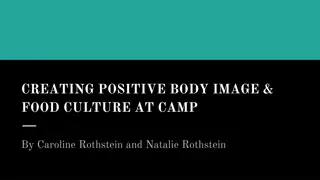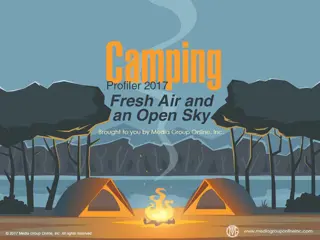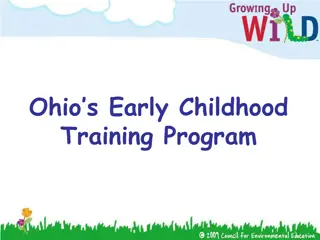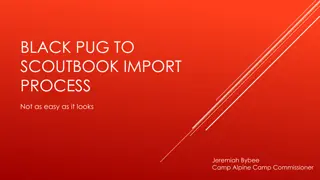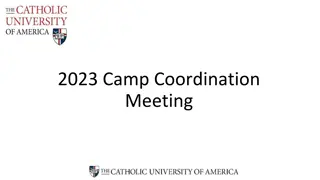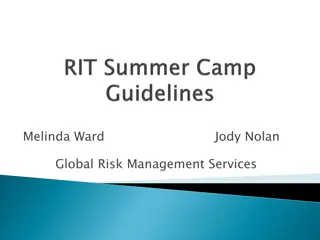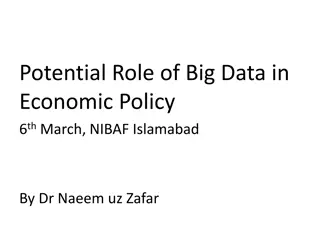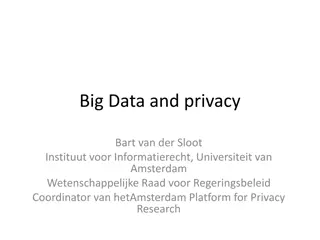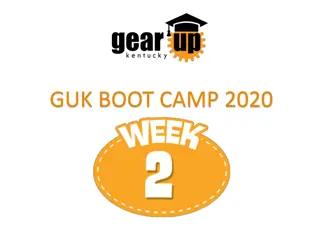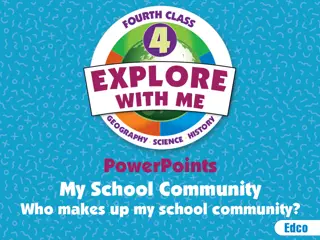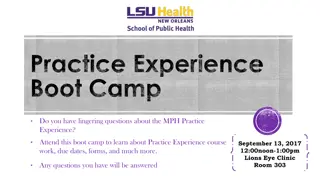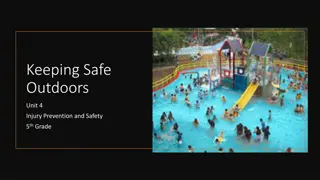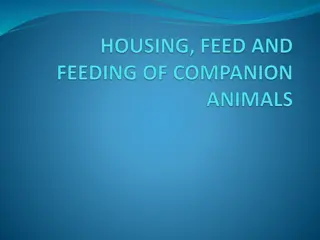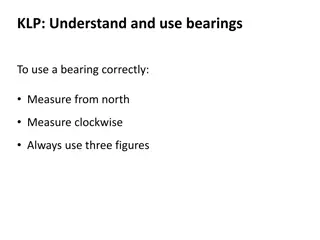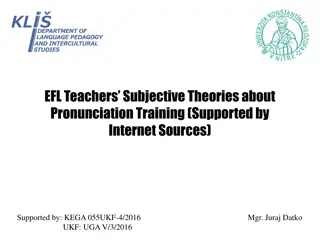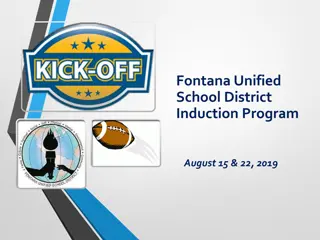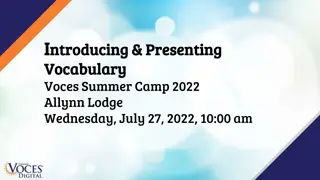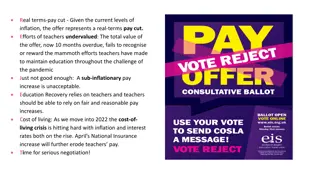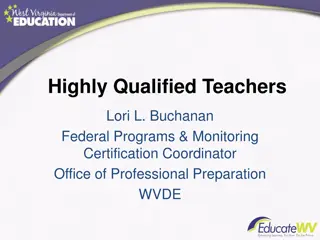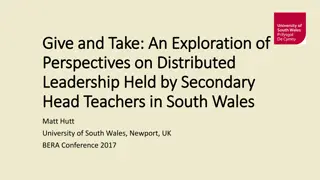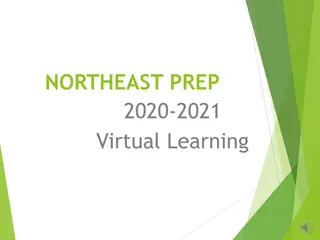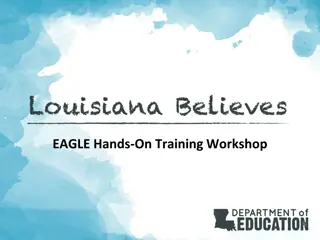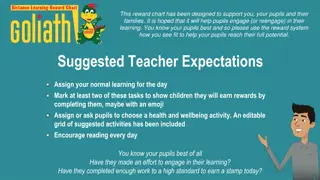Outdoor Learning Approach for Teachers at Big School Camp
Big School Camp presents a pedagogical-behavioural approach for teachers focusing on outdoor learning. They emphasize building resilience and experiential learning, applying rules differently to promote growth, and providing guidance for overnight camping activities. The approach encourages self-reliance among children while offering support when needed, fostering a sense of community, and setting clear boundaries through consequences.
Uploaded on Sep 15, 2024 | 0 Views
Download Presentation

Please find below an Image/Link to download the presentation.
The content on the website is provided AS IS for your information and personal use only. It may not be sold, licensed, or shared on other websites without obtaining consent from the author. Download presentation by click this link. If you encounter any issues during the download, it is possible that the publisher has removed the file from their server.
E N D
Presentation Transcript
Big School Camp Pedagogical Behavioural approach This is to provide teachers in schools our approach to learning in an outdoor environment.
Resilience and Experiential Learning We believe in the building of resilience as a key ethos and therefore will only step in with additional help once we feel a group or an individual is in serious need. Children may ask for help but sometimes we will ask them to ask peers first before we step in to build a sense of community. We acknowledge that children and adults will find it difficulty in pitching and packing the tents, but the gain in doing it themselves is far greater than us doing it for them.
Behaviour and Support Big School Camp believe in experiential learning so may apply rules differently to the school If they make a mistake our staff will let them know Please allow our staff to set the boundaries/rules initially but support us through with any pastoral issues as you know your children. Let us know about those with additional needs so we are aware of different approaches we will need to adopt. We often use consequences e.g. if you do this, this will happen, if you don t agree to do what we ve asked, then you will not be able to achieve an outcome. If they misbehave in one workshop we will not tell them they cant do the next workshop or activity every workshop with a different staff member is a Clean slate ; For example please do not say if you misbehave then you can t do fire skills, or you wont get a marshmallow.
Overnight camping Guidance for staff We understand that overnights can be exciting for the children, therefore it is expected that not much sleep will happen however below is some examples that will help manage the experience. Preparation for bed starts between 8.30-10pm with the aim of being in tents and quiet before 11pm We understand that overnight supervision is necessary, but do not feel a staff member stays on duty and awake for the entirety. Schools we have worked with adopted a range of strategies including the following Staff work in 4 hour shifts Fairly lights on staff tent so staff be awoken if necessary. Pupils take themselves to toilets with someone else from their tent


